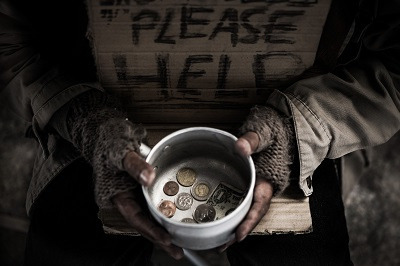Striking down a growth of ordinances in municipalities across the country attempting to make homelessness illegal, the 9th Circuit Court of Appeals has ruled that it’s not a crime to sleep outside on city streets when not enough shelters are available. Several cities had been fining or arresting people who slept on city sidewalks or in parks. In the decision, the court defines such legal action as “cruel and unusual punishment” and said it violates the Eighth Amendment of the Constitution.
The ruling stems from a 2009 lawsuit in which six homeless people sued the city of Boise, Idaho, after being convicted of breaking local camping and disorderly conduct ordinances banning people from sleeping or camping in buildings, streets, and other public places.
As housing costs rise, cities have been seeking ways to respond to a growth in homelessness, which increased nationwide in 2017 for the first time in seven years, according to the U.S. Department of Housing and Urban Development.
“Gentrification means less affordable housing,” says Maria Foscarinis, executive director of the National Law Center on Homelessness & Poverty. “It also means a lot of pressure to remove people who are visibly poor from prominent city areas. These trends are promoting criminalization and promoting these kinds of clashes.” The center was one of the complainants in the lawsuit against Boise.
The 9th Circuit’s 32-page opinion stated that Boise’s ordinances “criminalize the simple act of sleeping outside on public property, whether bare or with a blanket or other basic bedding. A municipality cannot criminalize such behavior consistently with the Eighth Amendment when no sleeping space is practically available in any shelter. As long as there is no option of sleeping indoors, the government cannot criminalize indigent, homeless people for sleeping outdoors, on public property, on the false premise they had a choice in the matter.”
Source:
“Laws Punishing Homeless People for Sleeping in Public Are Cruel and Unusual, Court Rules,” The New York Times (Sept. 5, 2018)













